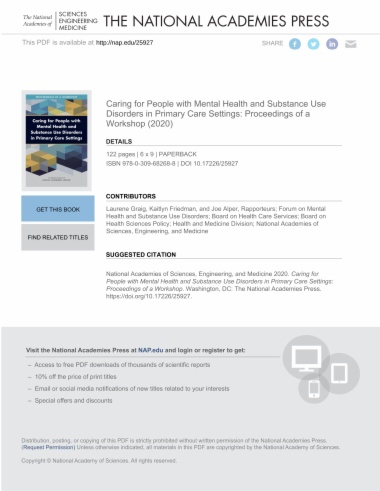

Behavioral health conditions, which include mental health and substance use disorders, affect approximately 20 percent of Americans. Of those with a substance use disorder, approximately 60 percent also have a mental health disorder. As many as 80 percent of patients with behavioral health conditions seek treatment in emergency rooms and primary care clinics, and between 60 and 70 percent of them are discharged without receiving behavioral health care services. More than two-thirds of primary care providers report that they are unable to connect patients with behavioral health providers because of a shortage of mental health providers and health insurance barriers. Part of the explanation for the lack of access to care lies in a historical legacy of discrimination and stigma that makes people reluctant to seek help and also led to segregated and inhumane services for those facing mental health and substance use disorders.
In an effort to understanding the challenges and opportunities of providing essential components of care for people with mental health and substance use disorders in primary care settings, the National Academies of Sciences, Engineering, and Medicine's Forum on Mental Health and Substance Use Disorders convened three webinars held on June 3, July 29, and August 26, 2020. The webinars addressed efforts to define essential components of care for people with mental health and substance use disorders in the primary care setting for depression, alcohol use disorders, and opioid use disorders; opportunities to build the health care workforce and delivery models that incorporate those essential components of care; and financial incentives and payment structures to support the implementation of those care models, including value-based payment strategies and practice-level incentives. This publication summarizes the presentations and discussion of the webinars.